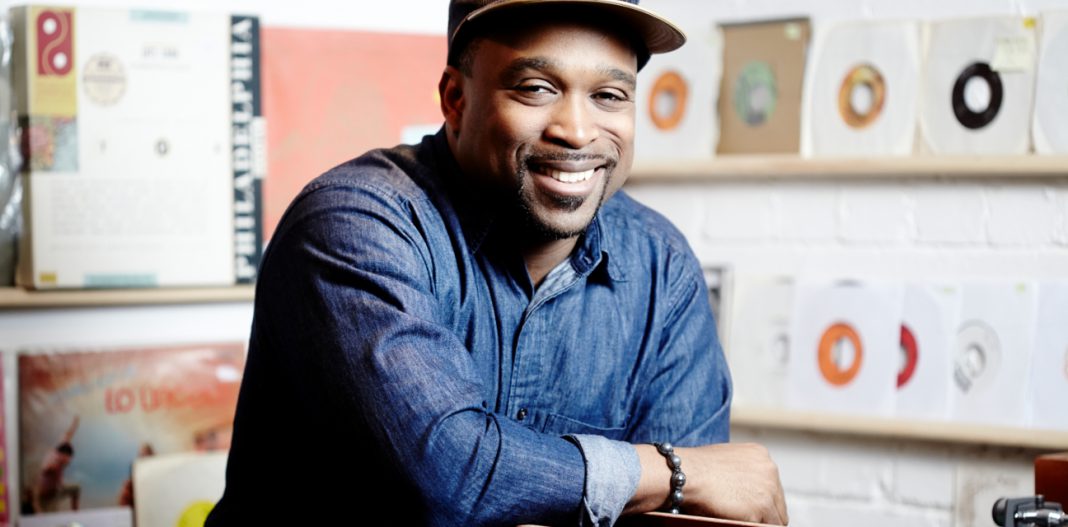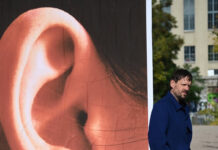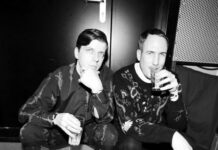Photo: Press (DJ Spinna), Interview: Lakuti
To call DJ Spinna a legend would be close to an understatement. In more than two decades of releasing music and plenty more behind the decks, the New York selector has stayed true to his underground roots, bringing some house flavour into hip hop and vice versa. Having invited him for one of her Finest Friday nights at Berghain’s Panorama Bar on March 30th 2018 which she runs together with Tama Sumo, Uzuri label founder Lakuti caught up with DJ Spinna to talk growing up in Brooklyn, the magic of Stevie Wonder and his hip hop roots.
What was it like growing up in Brooklyn when you did?
Growing up in Brooklyn in the 70s and 80s was an adventurous time. It was an era of so many bourgeoning scenes and multi-cultural experiences which meant there was no room for boredom. On one hand it was dangerous due to high crime rates but at the same time people were more connected in our neighborhoods. Fun could be as simple as hanging out on the front porch of your home, or the steps in front of your building with your friends talking trash, or playing games in the street which you don’t see much anymore. The elders watched over the kids on the block and there were much more codes of respect and honor with the youth unlike today.
How did you come into music? Was your family particularly musical?
I got into music really early, as soon as I could walk and talk I was playing music at home. I won’t say that my family was particularly musical, my dad was a modest music lover across many genres and I probably played his records more than he did on my own toy record players as a kid. I had an uncle who was an even bigger record collector, I would immerse myself in record knowledge until I started buying my own records at age 9. One of the things I always looked forward to every year was playing records at family gatherings during birthdays and holiday parties. This was way before I even knew what a DJ was.
Let’s talk about Stevie Wonder. What is it about Stevie that has led you to dedicating so much of your creativity around his music? Which other musicians have had an impact on how you approach things?
Initially what I loved about Stevie’s music growing up was his productions and musicianship. He was advanced in electronics as a medium for producing soul music which spoke to a younger generation, he moved soul music forward in the 70s and 80s. I marveled at him as a blind artist when I was a kid, wondering how he was able to do what he did with no eye sight. After getting to know him I realize that he has more intuition and capabilities than the average person with sight. As I got older I’ve learned to appreciate his messages of spirituality, unity and love in his music. Also, his voice is golden. When he sings it comes from a deep and vulnerable space in his soul, you can feel it. Other artists that have impacted me are James Brown, Prince, Michael Jackson, Herbie Hancock, Roy Ayers, Kraftwerk, and more modernly Masters At Work, Larry Heard, Blaze and Boyd Jarvis (RIP).
You have strong roots in hip hop. How did you make the leap from being a hip hop producer and DJ into other genres?
I never considered myself just a hip hop DJ. It may have appeared that way from my early hip hop productions that impacted widely and globally starting in the mid-90s, but I have always been into all kinds of music, especially house music, from day one. Growing up in New York, you had to play everything, at least that’s how things were when I was coming up. I geared my focus as a producer towards other genres as hip hop started getting more commercialized in the late 90s. I simply got bored and the New York underground hip hop scene started to dissipate. Indie hip hop record sales started declining heavily by the year 2000 and more doors started opening up for me as a producer in other genres like jazz, broken beat, future soul and house, I had to run with it. Having traveled to the UK and other parts of Europe and getting a more broader perspective on how good music is received all over the world, I realized back then that my musical quest is really bigger than hip hop. That part of me will never die. At the end of the day I love music too much to be a one-trick-pony. There’s a lot of people on this earth that love all kinds of music. I’m just feeding that machine.
What would your advice be to young and upcoming producers and DJs about how they approach things and elevating things into a deeper and meaningful thing that goes beyond just making money?
If you are going to pursue music as a career you have to love it. It can’t be a part time investment. This means you have to study your craft, put your hours in and get music out into the world as much as possible, especially today when people’s attention spans are short. Staying relevant is key and that investment will reward you in the end. If you’re an up and coming DJ, study the greats that came before you. With today’s access to information, everyone is a know-it-all. But there’s a big difference with getting your historical information about past DJs and noteworthy records online than actually going out to experience the legends that paved the way. I still feel the same excitement I felt as a teenager when I hear my hero DJs play today. It’s a constant reminder of why I got into this whole thing in the first place. The reward is now I’m playing alongside most of these legends who are now also my friends, but I don’t take that for granted either! It’s often a learning experience, staying a student keeps you on your toes. Lastly, be humble. Humility carries a lot of weight in this business.





